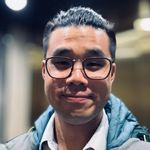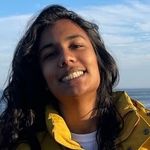推动转化科学的边界:宣布2025年BU CTSI海报会议获奖者!

We’re honored to celebrate these exceptional researchers for their impactful contributions to scientific innovation. Meet the winners below. Thank you to all who participated in this year’s poster session. Your work continues to push the boundaries of scientific discovery! To view more outstanding work, explore the BU CTSI Symposium Webpage.
 🏆 Kevin Chen – 1st Place
🏆 Kevin Chen – 1st Place
Boston University Chobanian & Avedisian School of Medicine
Kevin Chen is a third-year MD/PhD student in Dr. Darrell Kotton’s lab at Boston University’s Center for Regenerative Medicine (CReM), where he is focused on developing and testing airway stem cell therapies. Since beginning the MD/PhD program in 2020—at the height of the COVID-19 pandemic—Kevin has been motivated by the intersection of science and medicine and the collaborative spirit it requires. Inspired by CReM’s open-source, team-based approach to science, he is committed to translational research that advances new therapeutic options through transparency and collaboration.
“Transplanting Airway Basal Cells to Rescue CFTR Function”
This project explores a novel strategy to treat cystic fibrosis (CF) by reconstituting the airway stem cell compartment with autologous basal cells carrying a functional CFTR gene. Wild-type primary basal cells were transplanted into CFTR-deficient mice, resulting in airway epithelial regeneration and restoration of CFTR-dependent electrophysiologic current to levels comparable to those in healthy controls. These findings represent a critical step toward developing a mutation-independent, potentially curative therapy for CF patients who do not benefit from current treatments.
 🏆 Varuna Jasodanand – 1st Place
🏆 Varuna Jasodanand – 1st Place
Boston University Chobanian & Avedisian School of Medicine
Originally from Mauritius Island, Varuna Jasodanand is a PhD candidate in Behavioral Neuroscience at Boston University, working in Dr. Vijaya Kolachalama’s lab. Her research focuses on implementing and validating machine learning methods to improve the assessment and understanding of Alzheimer’s disease and related dementias.
“AI for Biological Alzheimer’s Disease Diagnosis and Staging”
This poster presents a multi-modal machine learning approach designed to evaluate amyloid and tau positivity in older adults. By integrating diverse data sources—including demographics, medical history, cognitive assessments, neuroimaging, and fluid biomarkers—the model supports a more personalized and precise method for diagnosing and staging biological Alzheimer’s disease.
 🥉 KathrynAnn Odamah – 3rd Place
🥉 KathrynAnn Odamah – 3rd Place
Boston University College of Arts and Sciences
KathrynAnn Odamah is a fifth-year Cellular & Molecular Biology PhD candidate in Dr. Hengye Man’s lab. She received her B.S. in Neuroscience from Duke University and enjoys training for powerlifting competitions and learning about therapeutic innovations for X-linked neurodevelopment disorders.
“Investigation of Rescue Strategies for Nexmif-Dependent Autism Spectrum Disorder”
Kathryn’s poster investigates the use of genetic restoration strategies to rescue neuronal impairments and behavioral deficits in a Nexmif knockout mouse model of Autism Spectrum Disorder. Her work demonstrates both DNA methylation inhibitors and CRISPR activation system to induce reactivation of the silenced Nexmif allele in female mice, and postnatal lentiviral restoration in male mice.
 🥉 Braden Pate – 3rd Place
🥉 Braden Pate – 3rd Place
Boston University Chobanian & Avedisian School of Medicine
Originally from Butler, PA, Braden Pate earned his bachelor’s in Biology from Colorado State University and now researches in the Vanuytsel Lab at the Center for Regenerative Medicine (CReM).
“Sickle Cell Disease-Specific iPSC Platform as a Preclinical Screening Tool”
This project leverages patient-derived iPSCs to model sickle cell disease, enabling tailored drug testing on erythroid progenitor cells. By capturing individual genetic backgrounds, Braden’s platform may help personalize and improve treatment strategies in the clinic.